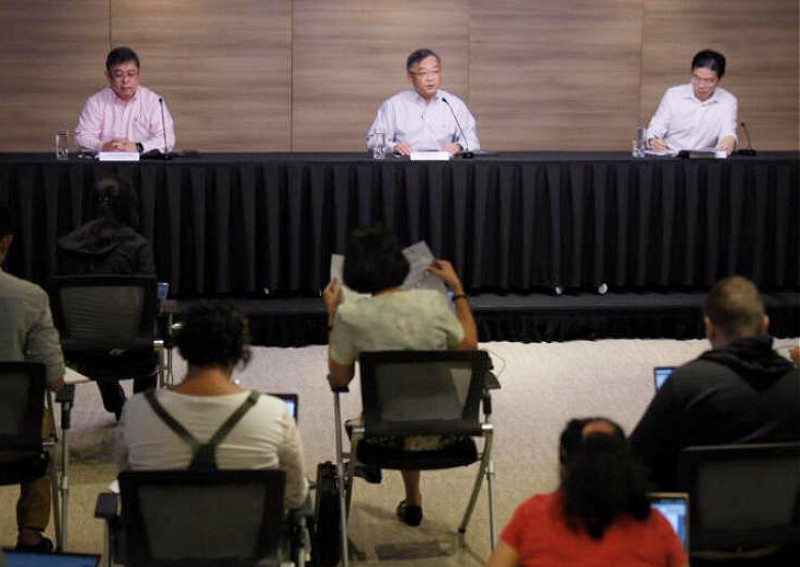New social distancing measures limit gatherings to 250 people


Organisers of upcoming events with 250 participants or more have been urged to cancel or defer them in light of the Covid-19 situation.
But if the events have already been committed to, they will only be allowed to proceed if satisfactory precautionary measures are put in place.
This is to reduce the risk of local transmission, as part of its updated advisory on social distancing measures announced yesterday (March 13) by Minister for Health Gan Kim Yong and Minister for National Development Lawrence Wong, who chair the multi-ministry task force on tackling the virus.
New requirements and advisories for gatherings, workplaces and public venues were also introduced.
For all other mass gatherings, including religious services and private functions, organisers are advised to reduce the scale to below 250 participants, reduce crowding, improve ventilation, and advise participants to reduce contact with others.
Organisers should also have in place temperature and health screening, turning away of unwell persons, and measures to facilitate contact tracing, such as obtaining participants' contact details.
For those attending such events, they are advised to practise social responsibility and monitor their own health, and avoid such gatherings and events if they are unwell.
"The basic idea around social distancing is to reduce density and crowdedness," said Mr Wong.
"Because many event organisers need some benchmark or a simple guide, we've used 250 as a guide to let them know roughly where to benchmark the size of their events."
He added that MOH will work with organisers and religious leaders, in particular, on reducing crowd sizes, and having more separation when people sit together.
"All of these are precautions that will be useful and necessary," said Mr Wong.
MOH advised employers to have measures to reduce close contact where feasible.
This could be done by implementing tele-commuting and video-conferencing, staggering work hours, allowing employees to commute at off-peak hours, and spacing apart seating in the workplace.
Owners and tenants of public dining venues are advised to set seats at least a metre apart.
Visitors to entertainment venues and tourist attractions, like casinos, cinemas and museums, should be limited by number at any one time, and spacing between them should be increased.
For sports centres and indoor facilities such as gyms and private academies, they are advised to limit the number of patrons, introduce physical separation measures, increase cleaning frequency, and issue advisories to reduce unnecessary contact and practise public hygiene.
Mr Gan said the measures will be reviewed accordingly as the local and global situation evolves.
"Ultimately all these measures will only work if each of us plays our part and exercises social responsibility," he said.
"Monitor your own health, and avoid attending gatherings and events if you are unwell. Let us work together to keep one another safe and healthy."
For the latest updates on the coronavirus virus, visit here.
This article was first published in The New Paper. Permission required for reproduction.